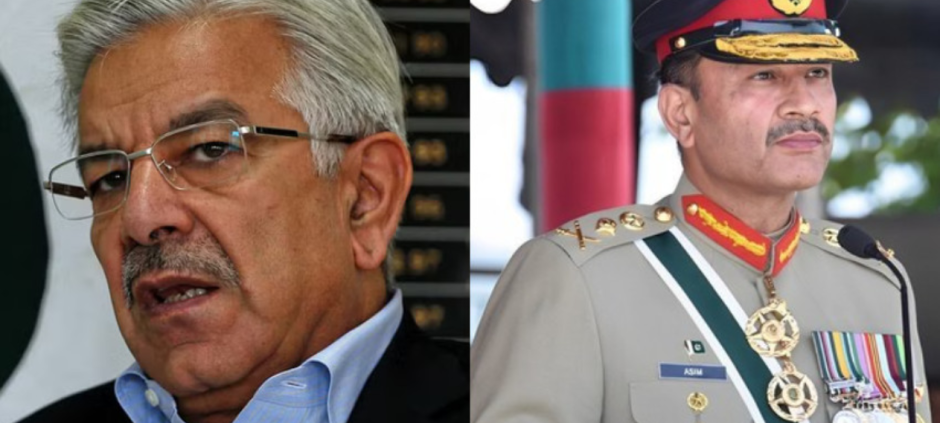Defence Minister Khawaja Asif announced that Army Chief General Asim Munir will serve until 2027 following the recent amendments to the Army Act, which were approved by Parliament. These legislative changes aim to establish fixed terms for military leadership, eliminating the need for parliamentary approval for extensions that had been common in the past.
Asif confirmed that General Munir’s tenure would continue without interruption, stating that the amendments effectively close the chapter on the previous practice of granting extensions to army chiefs, which required legislative endorsement. He emphasized the importance of self-improvement for Pakistan’s progress and declined to comment on rumors involving the founder of the Pakistan Tehreek-e-Insaf (PTI) party or his wife, Bushra Bibi.
Also Read: New Appointment Lt Gen Muhammad Asim Malik Named DG of ISI
In related developments, the National Assembly passed a significant legislative amendment extending the tenures of all armed services chiefs from three to five years. This bill received approval amidst protests from opposition members and is now awaiting the President’s assent. The new provisions align the regulations for military leadership, allowing the president, upon the prime minister’s advice, to appoint or extend terms for up to five years without age limits affecting the Chief of Army Staff and other military leaders.
Furthermore, the Law Minister Azam Nazeer Tarar presented additional proposals to increase the number of judges in the Supreme Court and Islamabad High Court, which were also approved despite opposition disruptions. The Supreme Court Number of Judges (Amendment) Bill 2024 proposes raising the number of judges in the Supreme Court to 34 and the Islamabad High Court from nine to twelve. The amendments also aim to address the backlog of cases in the judiciary by expanding judicial capacity and establishing constitutional benches to handle constitutional matters.
Despite a chaotic atmosphere during the voting process, including protests and physical altercations from opposition members, the government successfully pushed through these legislative changes, signaling a focus on judicial reform and institutional stability.











